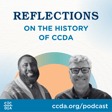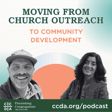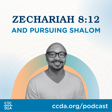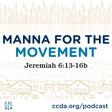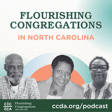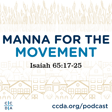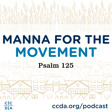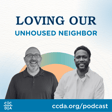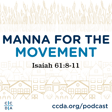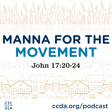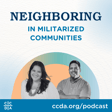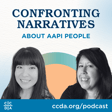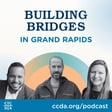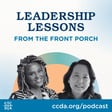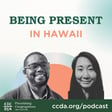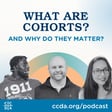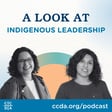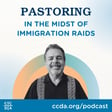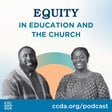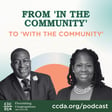
What is the CCD Philosophy?
Four seasoned CCD leaders dive into the 8 Key Components of the Christian Community Development philosophy. Discover how this approach to ministry can restore and transform lives, communities, and systems. This audio is from the 2024 Conference workshop, Overview of CCD Philosophy, Theology, and Practice.
Timestamps
(~02:55) - Relocation (Jonathan Brooks)
(~10:11) - Reconciliation (Sandra Maria Van Opstal)
(~15:47) - Redistribution (Mary Nelson)
(~23:44) - Leadership Development (Sandra Maria Van Opstal)
(~29:33) - Church-Based (Eun Strawser)
(~34:17) - Listening to the Community (Mary Nelson)
(~40:00) - Wholistic Approach (Eun Strawser)
(~46:30) - Empowerment (Jonathan Brooks)
To go deeper with the CCD philosophy, read Making Neighborhoods Whole, or complete the Immerse course.
Rev. Dr. Eun K. Strawser (she/her) is the co-vocational lead pastor of Ma Ke Alo o (which means "Presence" in Hawaiian), non-denominational missional communities multiplying in Honolulu, HI, a community physician at Ke Ola Pono, and an executive board member of the Christian Community Development Association (CCDA) with 20 years in both local and trans-local church planting work at executive levels. She is the author of Centering Discipleship: A Pathway for Multiplying Spectators into Mature Disciples (IVP). She and Steve have three, seriously, amazing children.
Jonathan Brooks currently serves as Lead Pastor at Lawndale Christian Community Church. He was the former pastor of Canaan Community Church in Chicago for 15 years. He is also an adjunct Professor for Northern Seminary in their Christian Community Development Program and Trinity Christian College’s Chicago Semester program. He has a deep desire to impress this virtue on all who will listen whether congregation, classroom, or community. He is the author of the book “Church Forsaken: Practicing Presence in Neglected Neighborhoods” published by InterVarsity Press. Lastly, Pastah J has also recorded four hip-hop albums with the group Out-World and a mixtape to accompany the book Church Forsaken.
Rev. Dr. Mary Nelson brings over 50 years of experience to the Christian Community Development Association as a Founder and former Board Member. Mary is President Emeritus of Bethel New Life, a faith-based community development corporation, where she served for 26 years. She still lives, works, and worships in the same low-income African American community. Mary actively participates in city-wide, national policy advocacy efforts. She is also on the faculty of the ABCD (Asset Based Community Development) Institute at DePaul University, on the Board of Christian Community Development Association, and served on the Board of Sojourners. Mary has her PhD from Union Graduate School and six honorary PhDs and is now doing consulting, writing, and teaching. She is the author of the handbook Empowerment, published by CCDA (2010), and has authored chapters in a number of books on sustainable community development.
Sandra Maria Van Opstal, a second-generation Latina, is Co-Founder and Executive Director of Chasing Justice, a movement led by people of color to mobilize a lifestyle of faith and justice. She is an international speaker, author, and activist, recognized for her courageous work in pursuing justice and disrupting oppressive systems within the church. As a global prophetic voice and an active community member on the west side of Chicago, Sandra’s initiatives in holistic justice equip communities around the world to practice biblical solidarity and mutuality within various social and cul
